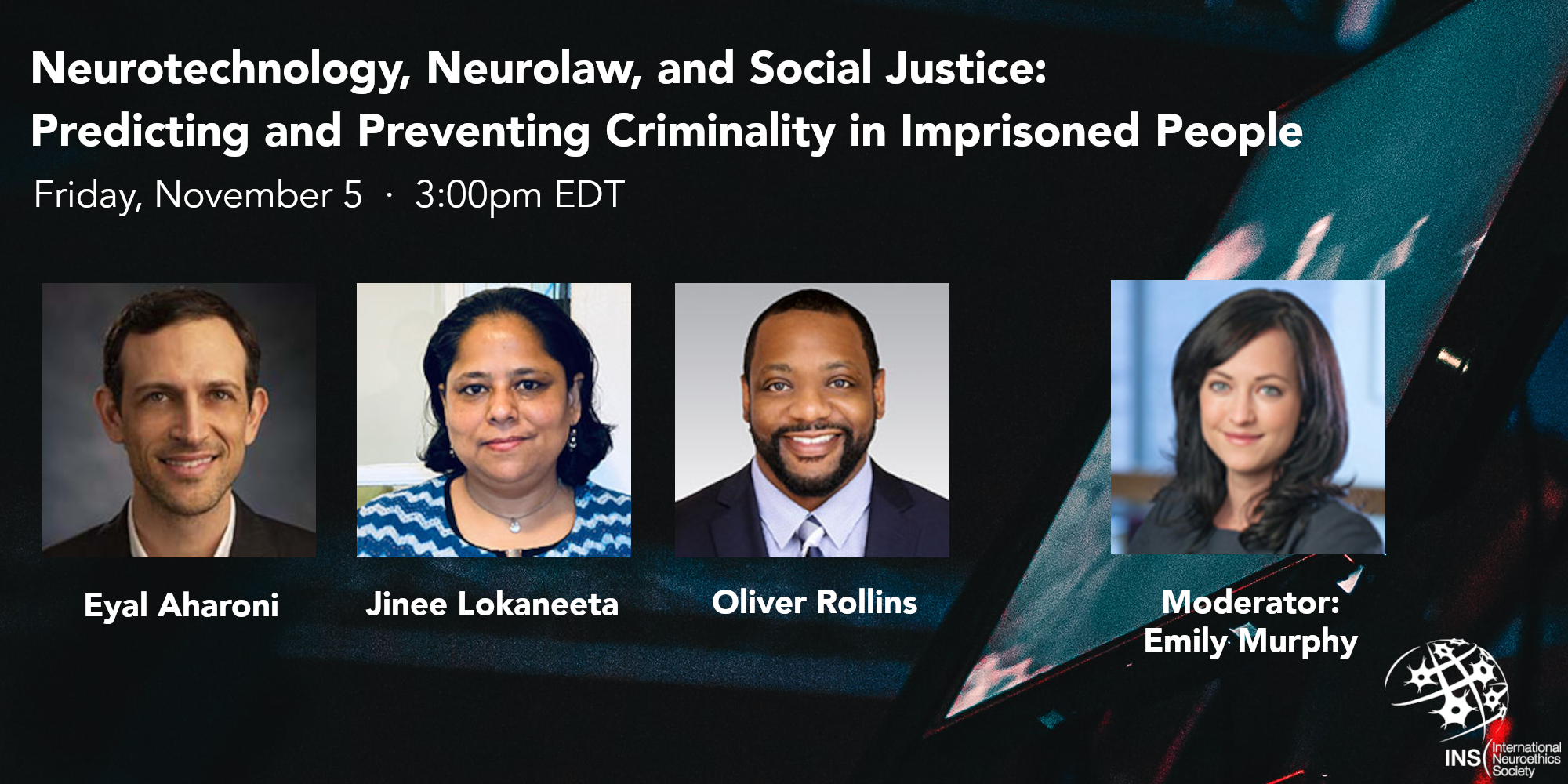Neurotechnology, Neurolaw, and Social Justice: Predicting and Preventing Criminality in Imprisoned PeopleFriday, November 5, 2021 The brain sciences continue to have considerable impact on surveillance, policing, legal practice, and incarceration. However, this influence carries the risk of worsening inequities or violating human rights. This session will explore the history and current practice of using the brain sciences to explain, predict, and prevent antisocial behavior — focusing on the consequences this has had and continues to have for vulnerable and marginalized communities globally. We will also consider the role neurotechnologies will play in the future of criminal law. Speakers
Agenda
 RecordingResources
Speakers Eyal AharoniAssociate Professor of Psychology, Philosophy, and Neuroscience Dr. Aharoni is an Associate Professor of Psychology, Philosophy, and Neuroscience at Georgia State University in Atlanta (USA). His research investigates risk factors for antisocial behavior and the influence of cognitive bias and other extra-legal factors on legal decision-making. Aharoni has a Ph.D. in psychology from UC Santa Barbara where he also served as a research fellow for the MacArthur Foundation's Law and Neuroscience Project.  Jinee LokaneetaProfessor in Political Science and International Relations Jinee Lokaneeta is Professor in Political Science and International Relations at Drew University, New Jersey. Her areas of interest include law and violence, critical political and legal theory, human rights and interdisciplinary legal studies. She is the author of 'The Truth Machines: Policing, Violence, and Scientific Interrogations in India' (University of Michigan Press, Orient Blackswan, 2020) (co-winner of the C. Herman Pritchett Best Book Award, 2021) and 'Transnational Torture: Law, Violence, and State Power in the United States and India' (New York University Press, 2011, Orient Blackswan 2012), as well as and the co-editor with Nivedita Menon and Sadhna Arya of 'Feminist Politics: Struggles and Issues' (Delhi: Hindi Medium Directorate, 2001). Some of her writings can be found on her website.  Oliver RollinsAssistant Professor of American Ethnic Studies Oliver Rollins an assistant professor of American Ethnic Studies at the University of Washington. His work interrogates how race and social difference influence the making and potential use of neuroscientific technologies and knowledges. Rollins’s book, 'Conviction: The Making and Unmaking of The Violent Brain' (Stanford University Press), traces the social implications of neuroimaging research on anti-social behaviors. Currently, he's working on a project that outlines ethical pitfalls and social promises of the 'neuroscience of race.' Moderator Emily MurphyHastings College of the Law, University of California |
